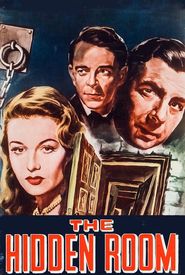Constance Vera Stevens, better known by her stage name Sally Gray, was a renowned English actress born on February 14, 1915, in London, England. As the daughter of a ballerina, Sally was introduced to the world of performing arts at a tender age of 10, initially training in dance and acting at the Fay Compton Studio of Dramatic Art.
Throughout the 1930s, Sally gained valuable experience as a chorine in London-based musical shows, before making her film debut in an adaptation of Richard B. Sheridan's classic restoration comedy School for Scandal in 1930. The statuesque actress went on to appear in a string of films, including Loves of a Dictator, Checkmate, Danger in Paris, and The Saint in London, showcasing her versatility and vivacity on the big screen.
Sally's career continued to flourish in the late 1930s, with appearances in light "B"-level entertainment, such as Cheer Up!, Hold My Hand, and Over She Goes, directed by the talented Stanley Lupino. Her portrayal of a wife who comes between her husband and his brother in The Mark of Cain, released in 1947, garnered critical acclaim.
After a five-year hiatus due to a major nervous breakdown, Sally returned to the screen in the post-war years, taking on "bad girl" roles in heavier dramas like Green for Danger, I Became a Criminal, and The Hidden Room. Her captivating performance in the latter film caught the attention of Hollywood, which offered her a contract; however, Sally turned it down when she married Dominick Geoffrey Edward Browne, the fourth Lord Oranmore and Browne, in 1950.
Sally settled into her new life as Lady Oranmore and Browne in County Mayo, Ireland, but eventually returned to live in London in the early 1960s. She never revived her acting career, instead dedicating herself to her gardening and tending to her husband's needs. Lord Oranmore and Browne, who served as a member of the House of Lords for 72 years, passed away in 2002 at the age of 100, followed by Sally's own passing on September 24, 2006, at the age of 91, in London.



































